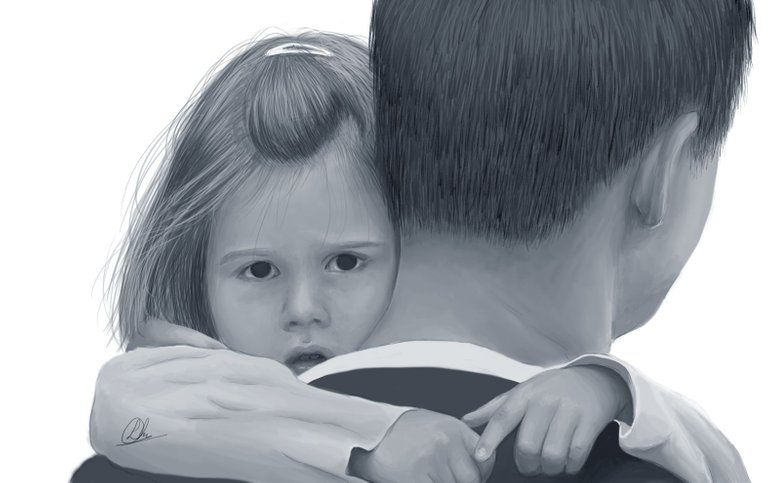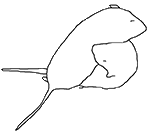
This is the english version of my (@lianaakobian) most recent post.
As a consequence of the increasing political and social movements of feminism in the last century and the introduction of more women's rights, the number of separations and divorces in Western countries increased steadily, especially in the last 50 years.

Motivated by the feminist perspective on divorce - marriage is a form of oppression and women no longer depend on men for financial stability- women strived for independence and freedom. And so it happened that divorced women also wanted to be independent in the upbringing of their child and, among other things, restricted the child's contact with the father, since they knew what was good for the child and what was not. "Mother knows best, father knows less."
Statistics:: in 2014, 15.5% of all children under 18 in Austria lived in single-parent households (14% of these with mothers) and 15.7% in non-marital cohabitation (e.g. patchwork families).
In light of this, not only anti-feminists, but also psychologists said that once children are involved, striving for independence is irresponsible, as the role of the father is of absolute necessity for a child's development.
But even in today's modern nuclear family, the father is not really seen as an 'equal' parent, and is simply there to earn money for the family during the day, to throw out some 'dad-jokes' at the dinner table and occasionally step in as a babysitter when mom´s busy.
And our society fails at conveying the importance of a father´s role, because women do not want to give up their hard-won independence and men do not want to deal with an issue that could possibly harm their masculinity. And those fathers who are aware of their responsibility do not speak up, or at least not enough.
Over the last twenty years, the social sciences have been able to gain significant insights into the social role of the father and his influence on the long-term development of the child.
I would like to highlight the differences between children who grow up in a nuclear family and those who grow up in a single parent household, to stress the importance of the father role.
The role of the father is not limited to the biological father, but can also be undertaken by (single) mothers or other caregivers. This is primarily about the type of interaction and relationship between father and child of a traditional nuclear family, which -according to studies- have a positive impact on the social and moral development of the child.
Is empathy coming from Mom or Dad?
Some studies have shown that children who grow up with a father are emotionally safer, more self-confident and more sociable when they grow up. They suffer less from depression, anxiety and eating disorders. On average, they achieve higher educational qualifications and greater occupational mobility.[1][2][3][5][12]
Children without fathers are more likely to be involved in criminal activities and drug abuse.[7] Daughters mature earlier in puberty and are more likely to become pregnant at a young age. Sons have a weaker self-esteem and difficulty in being emotionally intimate with others.[1][2][3][8]
One finding that surprised me was that although mothers are showing more empathy towards their children than their fathers do, children learn empathy from their fathers, not from their mothers. Children who have a close relationship with their fathers can control their emotions better and are often more popular with other children.[1][5]
And we also know that these consequences are not coincidental correlations, but actually arise from the way fathers educate their children - or do not educate them.
Learning by Rough-And-Tumble Play
So the question is less what a father teaches his children, more how he does it. The most noteable difference is that fathers educate their children by playing with them. Mothers play quantitatively more with their children, but do so according to the child's level of development, limit themselves to verbal interactions and let the child control the game.[9]
Interactions between father and child, on the other hand, are usually physical and highly stimulating like the rough-and-tumble play.
Learning rules:
Children voluntarily adapt to certain rules and start paying attention to their fellow human beings and their environment through playful fighting.
Let's say a father and his child play around and the child punches its father in the face. The father would then say, for example: "We can continue playing, but only under the following conditions: You can't punch me in the face, you can't yell around, etc...". And of course the child wants to continue to play, it is in fact starving to play with its father, so the child adapts to the established rules. As soon as the child breaks the rules, the father stops playing. The child may start crying, but sooner or later follows the rules to play. In this way the child learns which behaviour is allowed, what is provocative, what causes unnecessary pain to both parties and at the same time the child learns how to respond to certain actions.

Psychologist Jaak Panksepp has studied the social behaviour of rats and found that if you let a big rat play several rounds of'rough-and-tumble play' with a small, weaker rat, the big rat must lose at least 30% of the rounds for the small rat to continue playing. Thus rats also learn the parameters of a game and adapt to them. Panksepp also found out that rats that do not play'rough-and-tumble play' for a long time because, for example, their play partner does not want to play with them, they develop symptoms analogous to the ones of ADHD.[10]
This could also explain why children who grow up without a father have a higher chance to develop ADHD. As far as I know studies that show that there is a causal connection between ADHD and 'fatherlessness' do not exist yet, though.
The social behaviour of rats is very similar to that of children: If a child doesn't learn how to behave while playing, no one will want to play with them.
Lets look at a child A, who has never played with adults or other children, who now plays with another child B. A hits B on the head. B cries and turns away from A. A is so startled by the reaction of B that A starts crying too. This in turn leads to B not wanting to play with A even more.
B simply looks for a new play partner. A has no one to play with.
Playing is important for a child's social, cognitive, linguistic and general health development.[11]
Learning independence:
The curious, exploratory behaviour is also encouraged more by the father, as he trusts the child more und believes they are capable of more things. Mothers are more cautious and fathers encourage their children more to take risks that increase the child's self-confidence, self-esteem and independence.
A German-Israeli study by the German Institute for Youth and Society showed that these types of interaction between father and child continue until adolescence.
Fathers trusted their children to be independent about four years earlier, while mothers continued to perceive them as relatively dependent on them in the course of adolescence. - German Institute for Youth and Society
The self-confidence of the child is additionally strengthened if the father tends to egalitarianism. In this case, the child also has less gender stereotypes.[4]
Finally, it can be said that an involvement of the father in the upbringing of the child strengthens the relationship between father and child. And a father-child relationship that is also based on respect, trust and affection during adulthood leads to a long-term well-being of the child.
The role of the father is therefore a special and vital role in the life of a child.
This does not mean that the mother is not able to fill this gap. However, if a mother´s focus is on taking over the role of the father, the social role of the mother is neglected. Interestingly, it was discovered that fathers in a single-parent household take over the functions of the mother, which in turn leaves the role of father neglected.
Psychologists agree that the presence of two caregivers, one person taking over the functions of the mother and the other person focusing on the functions of the father, is extremely important.
I wanted to show you to some of the father's functions and emphasize how important it is to be a father. And if there is anything I wish for the next generation, it would be that man and woman finally put their social/gender problems aside and make the upbringing of their child their first priority.
No man should bring children into the world who is unwilling to persevere to the end in their nature and education. - Plato
The idea for this post comes from a recent conversation between civil rights activist Warren Farrell and clinical psychologist Jordan Peterson about "the absolute necessity of fathers", which I found totally interesting, and which most of the discussed points are derived from.
Links
sources:
[1] The Importance of Fathers in the Healthy Development of Children
[2] Putting fathers back in the picture: Parental activities and children's adult outcomes.
[3] Poverty, Paternal Involvement, and Adolescent Well-Being
[4] The Role of Father
[5] The Family Origins of Empathic Concern: A 26-Longitudinal Study
[6] The Importance of Fathers (According to Science)
[7] Parenting Practices as Predictors of Substance Use, Delinquency, and Aggression Among Urban Minority Youth: Moderating Effects of Family Structure and Gender
[8] Does Father Absence Place Daughters at Special Risk for Early Sexual Activity and Teenage Pregnancy?
[9] Life Without Father: Compelling New Evidence that Fatherhood and Marriage are Indispensable for the Good of Children and Society
[10] Can PLAY Diminish ADHD and Facilitate the Construction of the Social Brain?
[11] The importance of play in promoting healthy child development and maintaining strong parent-child bonds.
[12] How fathers care for the next generation: A four-decade study.
[13] Father-Child Relations, Mother-Child Relations, and Offspring Psychological Well-Being in Early Adulthood
Wikipedia!
pictures:
[2] Pixabay
[1] drawn by me (@lianaakobian)
[3] drawn by me (@lianaakobian)
TL;DR
Make Room for Daddy!
Fathers are necessary for the proper development of children, especially boys since a male figure from which to learn is very important. Perhaps the father has been an underestimated figure this past few years, but I believe the awareness about this subject has been increasing and more people are starting to realize the importance of fathers.
Your drawings are very beautiful! especially the first one!
I didn´t have the impression that people are realizing how important fathers are... quite the contrary actually with the radical left rising. But I think there´ll be a shift in the next couple of years :)
Thank you so much for your kind words!
Congratulations @allhailfish! You have completed some achievement on Steemit and have been rewarded with new badge(s) :
Click on any badge to view your own Board of Honor on SteemitBoard.
For more information about SteemitBoard, click here
If you no longer want to receive notifications, reply to this comment with the word
STOP